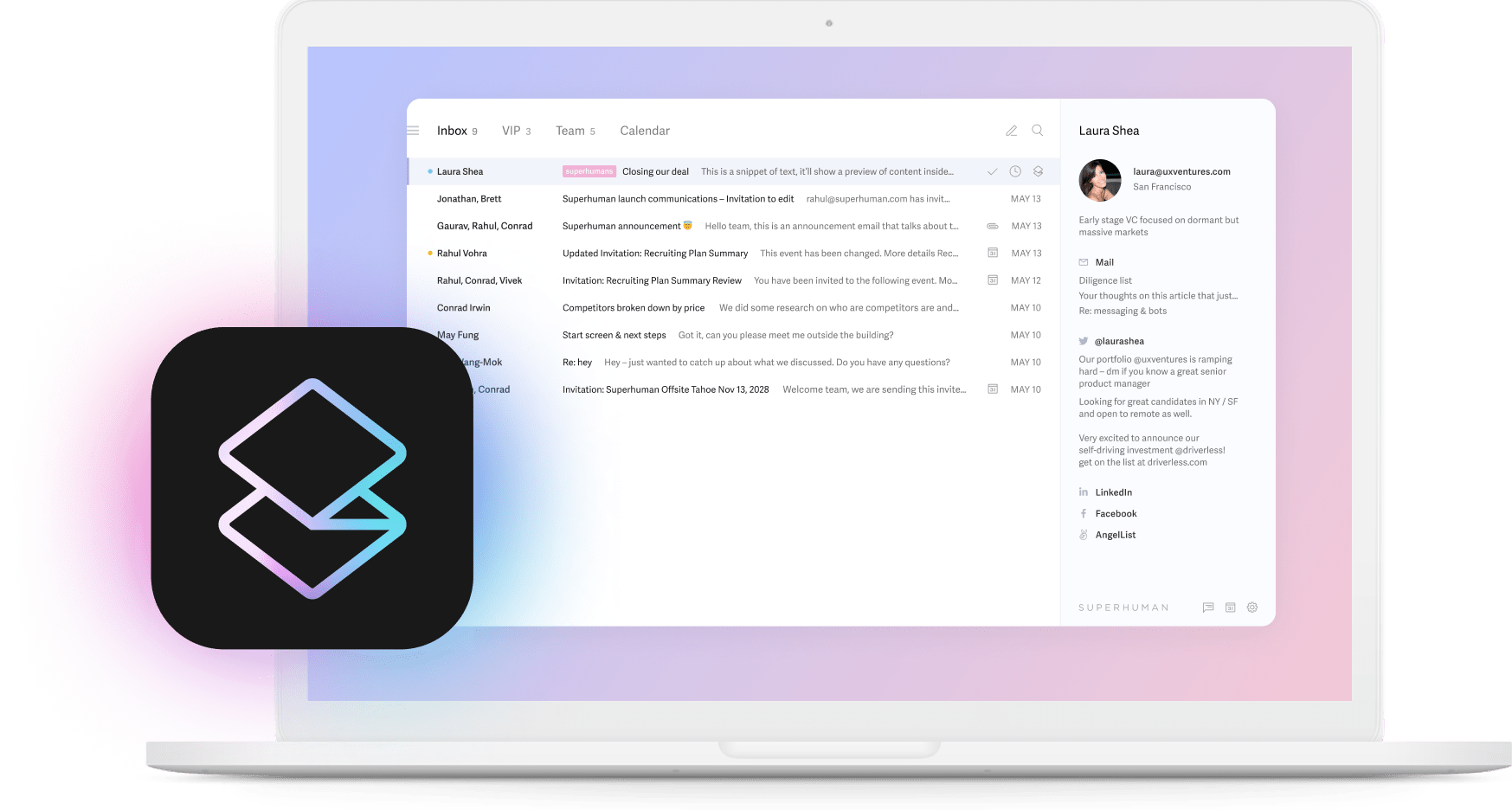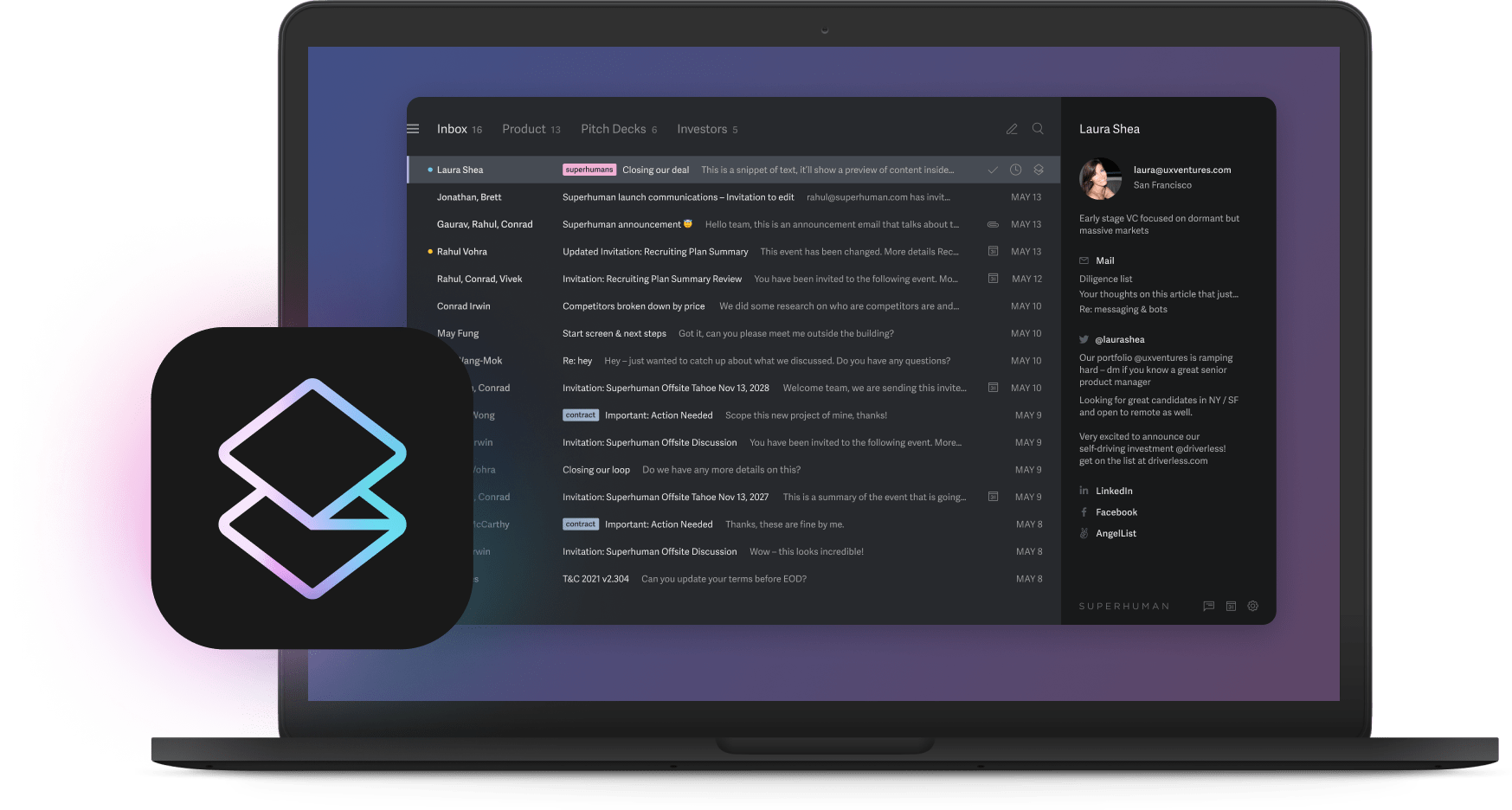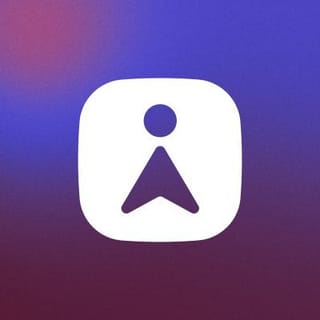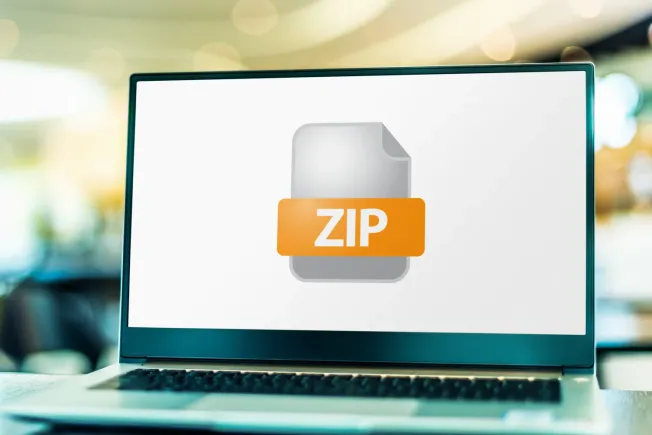
Your phone goes off at 4:47 a.m. and your heart starts pounding. You grab it with that familiar dread. Slack looks like a Christmas tree. Your inbox has 147 messages. That big customer you've been nursing along for months sounds like they're about to bail.
You scroll down Instagram while your eyes adjust. There's that founder you met at the conference last month. He's doing yoga on a cliff somewhere, holding a green juice, talking about gratitude. The gap between his morning and yours feels like different planets.
Nobody talks about this. Those perfect morning routines of successful entrepreneurs you see everywhere are mostly made up. Real mornings involve putting out fires before coffee and answering panicked emails while kids scream for breakfast. Some founders skip the theater entirely. They use smart email tools to compress two hours of chaos into 15 focused minutes. Superhuman customers save 4 hours every week handling real problems while others stage photos.
Time to strip away the performance.
The morning routine lie
Remember the last time you tried following one of those morning routine guides? The ones that tell you to wake at 4 a.m., take a 10-minute ice bath, meditate for two hours, then journal your intentions? How'd that work out when your biggest client called at midnight with an emergency?
These routines dominate business media because they sell hope. Every magazine features founders claiming they leap from bed at dawn for yoga and journaling before touching email. Surveys show successful people claiming sub-5 a.m. wake times. Exercise appears in every profile as the secret ingredient. But why do these stories persist when they clearly don't match reality?
The truth emerges when you talk to founders off the record. Wake times swing based on global calls and family needs. Many skip breakfast to tackle urgent emails. Others dive straight into their inbox because that's where revenue lives. Real schedules reveal skipped workouts, abandoned meditation apps, and coffee-stained chaos. The gap exists because investors equate discipline with returns, social media rewards aspiration over authenticity, and everyone wants to believe success has a formula.
This performance gap costs you time and energy. Every morning you fail to match the ideal, guilt compounds. You're comparing your messy reality to someone else's marketing campaign. Meanwhile, smart systems could handle your actual morning chaos in 15 minutes. Tools that sort, summarize, and respond while you're finding matching socks. Because real productivity means solving problems, not staging photos.
Why morning theater hurts your business
Let me paint you a picture. It's 5 a.m. and some founder you follow just posted their morning routine. Ice bath? Check. Meditation cushion positioned perfectly in frame? Check. Hand-ground single-origin matcha prepared with ceremonial precision? Obviously. Know what they don't post? The part where none of this correlates to closing deals or shipping product.
This productivity theater exists because founders feel pressure to signal success. Investors scroll LinkedIn searching for discipline markers. Your team watches to see if you walk the talk. The performance becomes mandatory even when Singapore calls at 11 p.m. and London needs answers at 5 a.m. You're not just managing a business anymore. You're directing a daily wellness documentary that nobody really needs.
The real damage shows up in your results. That European client who needed answers by their morning (your 3 a.m.) didn't care about your meditation streak. The investor update due before market open required data, not yoga poses. Your top engineer considering a competing offer wanted a response, not a picture of your gratitude journal. When you prioritize performance over problems, problems compound.
The solution isn't more discipline. It's better tools. Smart email systems handle the urgent client escalation before you'd finish foam rolling. Inbox organization surfaces what matters and buries what doesn't. Auto Summarize turns novels into nuggets. AI drafts responses that sound like you while coffee brews. Fifteen minutes of real progress beats two hours of theater because investors care about growth metrics, not meditation metrics.
What crisis looks like at dawn
Every founder hits this moment. Your eyes snap open to buzzing notifications. The phone screen hurts to look at. You already know something's wrong before reading a single message. Big customer threatening to leave over yesterday's outage. Key engineer just quit via email. Board member wants an emergency call about runway. Think a mindful moment with herbal tea helps here?
The founders who survive rapid growth understand something others miss. Morning routines must flex with reality, not fight it. They skip breakfast to tackle urgent problems. They admit to showering "if there's time." They've learned that when everything's breaking, rigid rituals break you. The question isn't whether you'll face morning chaos. It's how you'll handle it when it arrives.
Your mornings probably follow the pattern. That 4:47 wake-up with your stomach already tight. Scrolling through overnight disasters while calculating potential losses. Traditional routines assume quiet reflection time that startups never provide. You need systems built for volatility, not vacation. Tools that compress decision-making when your brain barely functions.
Smart email workflow transforms chaos into clarity the second you wake. Filters surface only what matters, saving precious mental energy. For instance, Superhuman's Read Statuses reveal who's seen your emergency message and who's still sleeping. Auto Summarize breaks down endless threads into bullet points your tired brain can process. Five minutes to spot real fires. Five more to draft human-sounding responses. Last five to set follow-ups. You get flexibility that works at 4 a.m. or 9 a.m., at home or in hotels, whether life's calm or burning down.
The real morning timeline
Let me walk you through how mornings actually work when you stop performing and start solving. With the right tools, those brutal hours from 4:47 to 7:00 transform from chaos to control. Each moment builds on the last, creating momentum instead of mounting stress.
4:47 AM: Anxiety wake-up
Phone buzzes. You grab it before your brain fully boots up. 147 emails stare back. But wait. They're already sorted. VIPs on top, projects grouped, newsletters swept aside. You scan the damage in 90 seconds flat. One message screams urgent. Tap Instant Reply, speak your response, done. The crisis starts moving while you stumble to the bathroom.
5:15 AM: Damage report
Coffee drips while you get oriented. Your dashboard pulled overnight data. Key accounts show warning signs. But those dozen email threads about them? Already condensed by Auto Summarize into three-line briefings. Other founders would be lighting incense right now. You're getting facts.
6:00 AM: Response orchestra
Time for real work. AI drafts your response to the wavering customer, matching the tone from previous exchanges. You tweak it, drop in the pricing template, hit send. Reminder set for 10 a.m. if no reply comes. Meanwhile the system keeps sweeping away newsletter clutter and sales pitches. Your runway stays clear.
7:00 AM: Human reality
Kid needs lunch money. Partner asking about dinner plans. Coffee splashes on yesterday's hoodie. This is life, messy and unpredictable. Your inbox? Still under control. AI tools keep sorting and summarizing while you switch into human mode. Those magazine profiles show founders in lotus position. You're negotiating with a six-year-old about vegetables. Both are valid.
The three-tool morning stack
Forget the wellness stack. You need three specific tools that handle chaos while you handle life. Together they transform morning madness into manageable workflow. Each tool solves a distinct problem that traditional routines ignore.
Tool 1: AI email intelligence
Start here because email is where fires live. Smart inbox organization already knows which messages matter before you do. Your biggest customer jumps to the top. That investor you've been courting appears next. Newsletter about productivity tips gets swept away. This isn't just sorting. It's triage that protects your cognitive load when you're least equipped to handle it.
The intelligence goes deeper than organization. Read Statuses show you who's seen critical messages, eliminating the anxiety of wondering if your urgent email landed. When threads get overwhelming, Auto Summarize breaks them into bite-sized insights. What used to eat 30 minutes now takes one cup of coffee. Smart sorting cuts email time nearly in half because it knows what you need to see first.
Tool 2: Connected workspace
Your inbox gets exponentially smarter when everything else plugs into it. Integration platforms push overnight metrics straight to your email, eliminating the tab-switching marathon. Sales alerts, bug reports, customer feedback all land where you already look first thing. Task management platforms convert those alerts into action items automatically.
This connection matters because context switching kills morning productivity. Instead of checking eight dashboards while your brain boots up, everything critical waits in one place. You see the full picture immediately. No wondering if you missed something important in another app. No logging into multiple systems before coffee. Just one command center that assembled itself overnight.
Tool 3: AI communication
You've spotted the problem. Now you need to respond fast and well. AI drafts responses in your actual voice, not generic templates. The system learned from emails you've already sent to each person, matching your tone and style. This matters because morning brain struggles with coherent writing, but deals still need closing.
The speed compounds when you add templates for repeat scenarios. Polish the AI draft, maybe add pricing details, send. Set a follow-up reminder if needed. Teams using these tools respond faster and handle twice the message volume. That's the difference between all-day inbox jail and having time for real work. Stack these three and watch your morning transform from reactive scrambling to proactive progress.
Data that matters
You know the average founder gets 5.7 hours of sleep and checks their phone 14 seconds after waking. But here's what the research actually reveals. No connection exists between elaborate morning routines and business success. Zero correlation between meditation minutes and revenue growth.
What does correlate with success? Speed and efficiency in handling critical communication. Teams using smart email tools save 4 hours per person every week. Response times drop from days to hours. Message handling doubles. These aren't marginal gains. They're transformative differences that compound daily.
The gap between morning routine mythology and productivity reality costs founders millions in lost opportunities. One approach demands perfect discipline at dawn, assuming you have unlimited willpower and zero urgent problems. The other handles the work while you handle whatever life throws at you. When your biggest customer emails at midnight, when your team needs guidance before dawn, when deals move at the speed of communication, only one approach scales.
Build your 15-minute morning system
One setup session gives you sane mornings forever. Here's the exact blueprint that transforms chaos into control. Each step builds on the previous, creating a system that handles problems while you're still waking up.
Start with inbox organization because that's where morning fires burn hottest. Create smart sections for people who matter, projects in flight, and everything else. Critical floats up, noise sinks down. Superhuman's Split Inbox takes maybe three minutes to set up but saves 30 every morning. This foundation determines whether you're reacting or responding.
Turn on AI drafting next. The system studies how you write and starts suggesting responses that sound like you, not robots. Three more minutes of setup enables you to handle 50% more messages in the same time. When morning brain struggles with words, Write with AI maintains your voice and closes deals.
Connect your other tools to create a true command center. Sales data, support tickets, team updates all flow to where you'll see them first. Five minutes to set up the pipes eliminates the morning dashboard shuffle. Build templates for repeat scenarios like pricing explanations, status updates, and polite rejections. Superhuman's Snippets feature makes this effortless. Five final minutes of prep work saves hours of repetitive typing.
This system works at 4:47 a.m. or 9:00, at home or on planes, when life's smooth or when everything's burning. Superhuman customers save 4 hours weekly per person, respond twice as fast, and say their inbox feels 10x lighter. The best morning routine handles business while you handle being human. Get tools that work so you don't have to perform. Wake up to progress, not theater. Make email feel good again.






